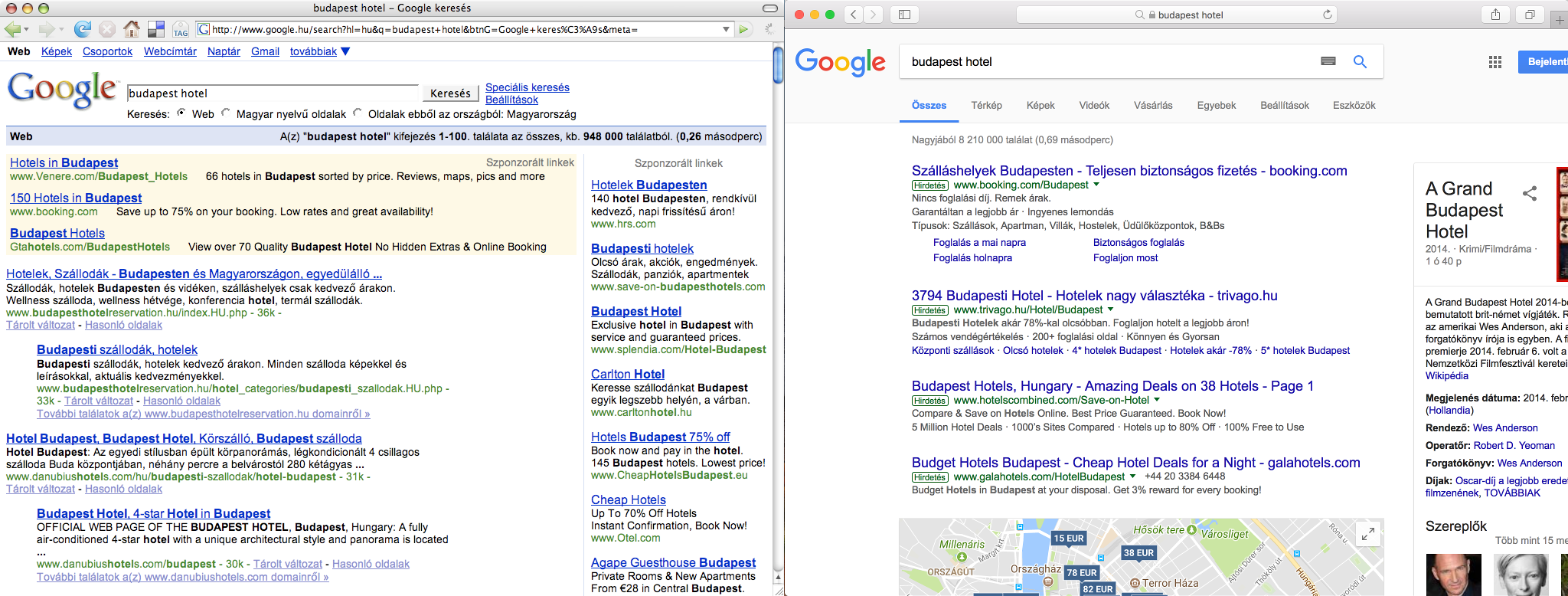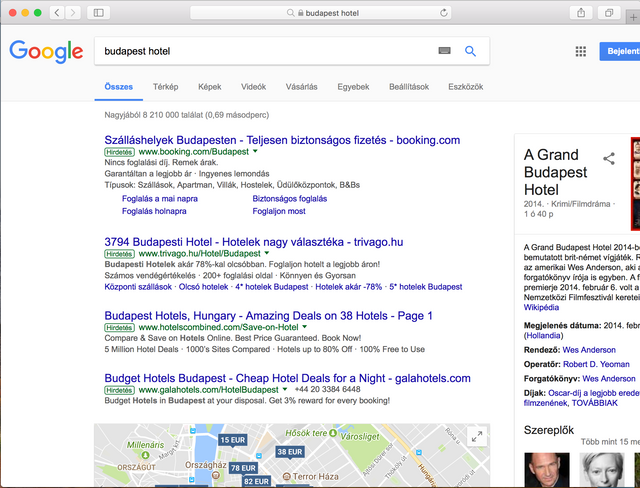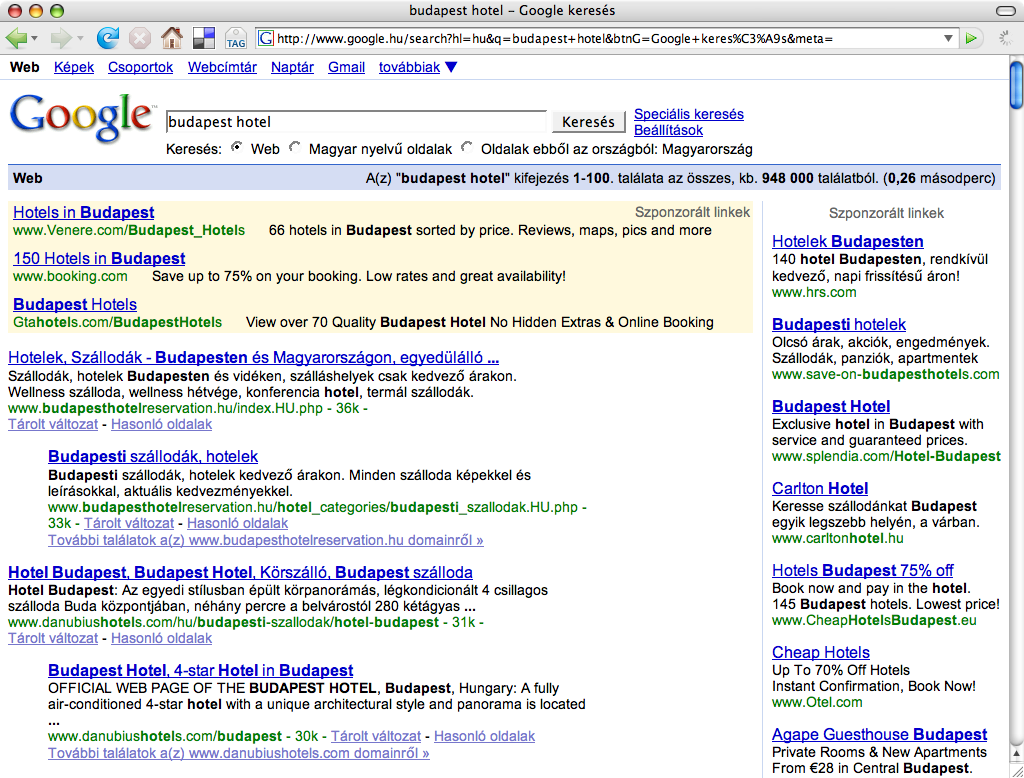
I have just come across an old screenshot of a Google result page while tidying up my files, and I could not resist comparing with how the search engine result page looks now. It clearly illustrates how Google search engine evolved over the years, and what impact this evolution has on how effective online marketing is done nowadays. This pair of screenshots showing the result page for the expression: budapest hotel, which is, of course, a very competitive search keyword.
The first thing you probably notice, apart from the cleaner look, is that the page does not fit on a 1024 pixel wide screen — a screen resolution commonly used by web designers as the minimum width ten years ago. But beyond this kind of web design issues, there are a couple of substantial, and I would say by far more important differences too.

No organic results above the fold
While the old screenshot shows four non-paid search results, filling up almost the half of the screen real estate used to display results, the contemporary screen capture displays no ordinary search results above the fold, not even on bigger screens with full HD resolutions.
During those good old days, if you were clever enough, you could get a considerable exposure in Google search results, while these days you have to rely on paid online campaigns, just because otherwise you cannot get before the eyes of your audience. On the above screenshot, you can observe how the paid results, a knowledge panel on the side, and the hotel search on the map pushes down the first organic search results way below the fold. Meanwhile, in the old screenshot below, you can spot non-paid result snippets of an old-school hotel booking site and a website of a hotel aptly named "Hotel Budapest".
By the way, these owners of these first-generation hotel listing/booking pages were among the first ones who were actively doing SEO in Hungary. They have been optimized either by the owner of a hotel or some apartments or their in-house expert, heavily relying on automated mass link exchange schemes and other, now obsolete techniques. They have been wiped out by a Google algorithm update, way before booking.com and Airbnb started new chapters in the history of online booking.

Google wants to keep users in its walled garden
Although Google itself still does not create content, the tendency is clear, just as it was obvious ten years ago too: more and more web content is to be scraped, processed and displayed in a structured format on Google's own web pages, thus more and more answers are given on the search result pages itself, therefore the content creators are rewarded with fewer and fewer clickthroughs by Google.
You can observe how the hotel offers are listed on a map, how the different prices from the booking portals and the hotel web pages are blended in search results, and how the whole thing is enriched by user reviews and other additional information hosted by the Google My Business service.
It can be easily seen that this ”movement” provides a more seamless experience for the search engine users but means a lot of drawbacks for the webmasters aiming for getting organic, that is free traffic from one of the most popular websites of our time.
Some more tidbits
It's also funny to see that while a couple of years ago there was only 948 000 results reported, nowadays there are approximately 8 210 000 results estimated – almost ten times more.
This might be the reason for a ”slower” result generation time: instead of 0,26 seconds, it took almost three times longer, a whopping 0,69 seconds. :)
Over the past few years, Google search result pages (SERPs) have undergone several significant changes and updates. Featured snippets provide concise answers to user queries directly on the search results page. These snippets aim to provide immediate information without requiring users to click through to a specific website and also check some ideas about education thereThe goal is to provide users with relevant, reliable, and easily accessible information directly on the search results page, adapting to the evolving needs and preferences of users.. They appear above the organic search results and can include text, lists, tables, images, or videos.
Downvoting a post can decrease pending rewards and make it less visible. Common reasons:
Submit